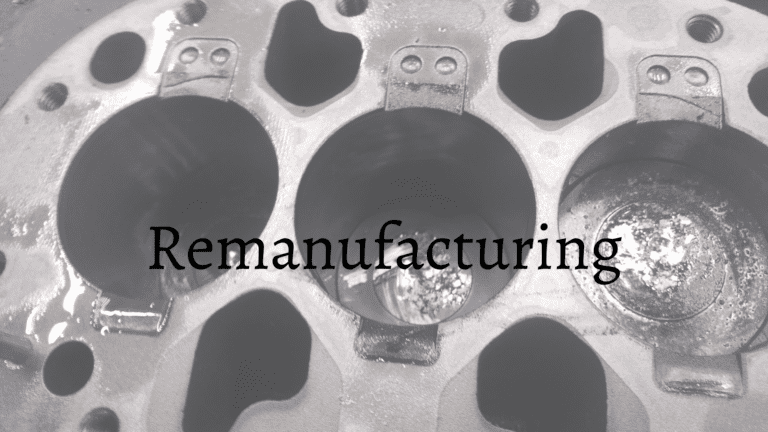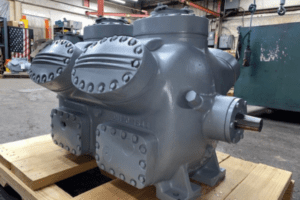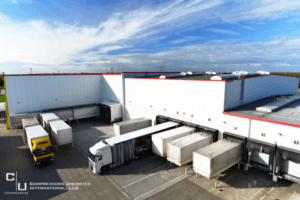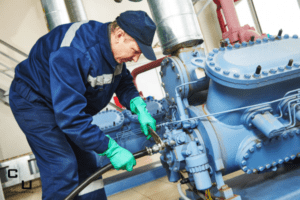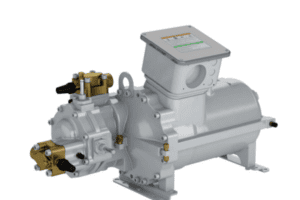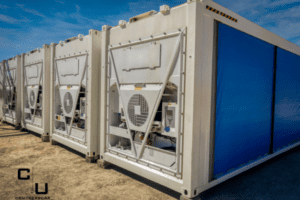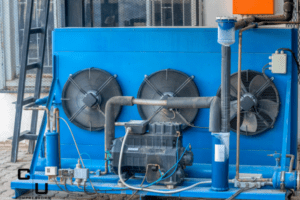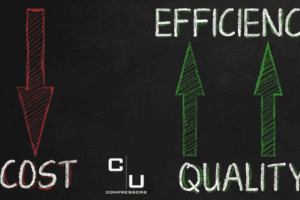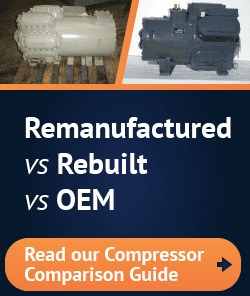When you’re looking for a quality commercial compressor, there’s some crucial terminology to know.
It’s especially vital to recognize the difference between a remanufactured compressor and a rebuilt one. This is easier said than done, though, as even within the industry there have been conflicting definitions. Sometimes, even compressor wholesalers are unclear about what they mean.
However, that doesn’t mean there’s no right answer.
The Biggest Myth About a Remanufactured Compressor
Both “remanufactured compressor” and “rebuilt compressor” refer to previously owned compressor units that have some type of mechanical work done prior to resale. That’s where the similarity ends, as the scope of the work performed is completely different.
All too often, people are thinking remanufactured, but talking rebuilt.
When people price remanufactured compressors, they often think it means the unit has 100% all-new parts. But no matter whether you’re working with an independent remanufacturer like Compressors Unlimited or a factory-authorized remanufacturer, this is not the case.
In any remanufactured compressor, you’ll find a mix of new and recycled parts.
This is true for Carrier compressors, Copeland compressors, Trane compressors, York compressors, Hitachi compressors, and many more. OEMs document the fact in different ways, but it’s easiest to find with Carrier/Carlyle. Most Carrier/Carlyle compressors have a tag that states:
“This compressor may contain “recycled” parts in an effort to save energy and natural resources.”
The average person might think “recycled” refers to being made of post-consumer materials, but that isn’t the case here. Recycled means that the component has seen previous service and was cleaned, checked and deemed fit for continued use by a qualified technician.
The Difference Between a Remanufactured Compressor and a Rebuilt Compressor
When a company asks its customers to return defective parts, it isn’t doing so simply to examine the part and learn about the root cause of failure. This may happen in some cases, but ultimately, that part’s destiny might could include being refurbished and returned to service in another unit.
Of course, reputable companies thoroughly test recycled parts to make sure they meet, or exceed, all the original OEM design tolerances. This often means testing under load. That runs the risk of having the part fail, but better in the workshop than in the customer’s facility!
In the end, the real difference between a remanufactured compressor and a rebuilt compressor comes down to the standards of quality upheld by the company. All too often, “rebuilt” is short for “cleaned and repainted,” with damaged components left in position to fail in short order.
Naturally, these are the companies that don’t stand behind their work for very long, if at all.
At Compressors Unlimited, all our work is backed up by our 12-month limited warranty.
Our 12-step process is second to none in the industry. It includes:
- Draining and properly disposing of the oil.
- Completely disassembling the compressor unit down to the bare casting.
- Safely and promptly discarding all bearings, inserts, seals, rings, o-rings, and valves, then replacing all of these components with new parts.
- Inspecting the compressor casing for any defects or signs of wear, such as scored cylinder walls.
- Key components including the crankshaft, pistons, rods, and liners are completely cleaned out and examined to ensure they meet all applicable tolerances.
- Each part deemed not to meet all tolerances and standards is properly discarded and replaced with a new part, which is then checked to ensure it meets OEM standards.
- All valve plates are completely stripped and reground to meet tolerances. All new springs and reeds are used to re-assemble the valve plates.
- Phase-to-phase and phase-to-ground resistances are tested after thoroughly cleaning out the stator. In the event it needs to be replaced, a new stator is created in-house using our proven guidelines and materials. All end products meet or exceed OEM specifications.
- The compressor unit is reassembled with all bolts newly torqued to original specifications.
- Immediately afterwards, leak testing is performed through total immersion in an inert, clear liquid. This is done by sealing the unit off with blank-off plates and charging it with nitrogen. Leaks are identified by the assembling mechanic and fixed immediately.
- Once leak testing is complete and all leaks are resolved, the oil is changed. Unloading action, oil pressure, amp readings, and pump-down are all tested. The results of all tests are recorded so that full maintenance documentation is available to the eventual customer.
- Along the way, all tolerances, torques, and operating specifications are checked against the authentic OEM product literature. Units are not released for sale until they meet or exceed all of the documented standards – no exceptions.
For commercial compressors to be worth the money, they need to be reliable. For them to be reliable, the team behind them needs to work to the highest standards. No matter which supplier you use, be sure you know what they mean by “remanufactured” or “rebuilt” before you sign on the dotted line.

